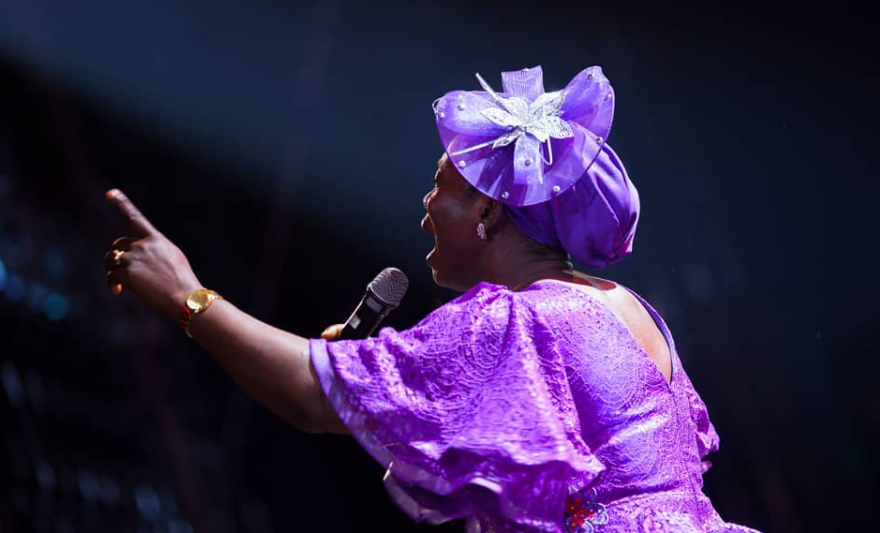BY WEALTH DICKSON OMINABO
The death of Nigerian gospel singer Osinachi Nwachukwu came as a rude shock to many Nigerians, especially those within the Christian community who have been inspired by her ministration. Osinachi was a minister of grace, an evangelist and a voice of consolation. Through her songs, she offered hope to many and became a blessing to Christians, even those outside her faith.
Her voice was therapy to many in despair. She heralded hope and implanted in the subconscious of her listeners the buoyancy of God’s grace and the effulgence of His glory. Nara Ekele and Ekwueme were songs that moved many to tears and redeemed many from the abyss of despair as well-healed many troubled hearts.
The first two days after her death were moments of mourning in Nigeria. Friends, colleagues and other sympathisers paid glowing tributes to her, giving beautiful testimonies of her life and times and the impact she made in her chosen career and profession within the period she lived.
Advertisement
The conversation later took another tone, when days after, the news about her death was discussed. At first, her death was attributed to throat cancer, but those in her inner circle made conjectures that her death could have resulted from domestic violence. Many of her colleagues and close relatives shared their experiences with her and the tragedy that existed in her marriage. Some who spoke gave hints about the toxic relationship she had with her husband and how she was a prisoner in the institution called marriage.
The death of Osinachi has opened many debates in Nigeria. One of such debates is on the institution called marriage and the challenges that accompany it, especially in a patriarchal society like ours, where domestic violence and other biases against women and the female gender are almost institutionalised.
Commentators and Nigerians, in general, are asking why do people choose to keep quiet in toxic relationships even to the detriment of their safety and lives? To what extent should we hold on to the cliché “marriage is for better or worse”? What is the right time to seek divorce in a toxic marriage? To what extent has our culture encouraged the toxicity called domestic violence in marriages and why didn’t the deceased refuse to seek divorce or at least separation in the midst of her marital crises.
Advertisement
Many have argued that there are many reasons why women, especially those in positions of spiritual authority like Osinachi, insist on staying married even in the midst of marital woes and crises to the detriment of their safety and happiness. One of such reasons is the negative stereotype and stigma associated with single motherhood and divorce. In some areas, female divorcees are often stereotyped as irresponsible and often seen as those who lack the virtues of tolerance, and patience. Among some religious sects, marriage is often a criterion for leadership, a divorcee is likely going to lose some privileges and respect among her congregation. Of course, being married is considered a mark of success in our society. Some divorcees or unmarried adults are often trolled, as we have continued to promote and sustain a cancel culture pertaining to divorcees and unmarried people. It is common to hear people say, “how can you take that person who can’t keep a home seriously. Go and settle your marital issues before you come and talk to us”.
Some have said that if Osinachi had opted for a divorce, there was the likelihood that she would have had challenges in her music career, as some religious leaders would have termed her as unfit to minister in their sanctuary. This, some commentators say, underscores the level of hypocrisy that exists in our religious institutions as members die in silence just to meet up with social expectations and conform to doctrinal standards.
The revelations that have ensued from colleagues of the late singer show that Osinachi was a prisoner in marriage, had no peace, and lost her freedom and joy in her home. The tragedy of Osinachi’s death calls for the review and reassessment of our religious and cultural practices and doctrines. Religious clerics who teach that God hates divorce and marriage is for better or worse must now strike a balance between the sanctity of human lives, human dignity and human doctrines. Also, there is the need for more conversation on the challenge of domestic violence and if need be legislation against such violence.
It is interesting to observe that there is already a petition with over 15,000 signatures demanding justice for Osinachi. Campaigners are demanding for proper investigation of issues of her death and asking that Peter Nwachukwu, the husband of the deceased who has been arrested in connection with the death, should face the wrath of the law.
Advertisement
“Justice for Osinachi is Justice for every Nigerian woman who has ever been a victim of domestic violence and that is why we’re calling for the “ANTI-DOMESTIC ABUSE ACT. The legislation will as a matter of urgency ensure that there is funding for specific domestic abuse services including gender desks at police stations across the country,” the petition reads in part.
Challenging as it seems to legislate on domestic violence and other challenges in marriage, we must look for ways to protect our citizens from avoidable deaths and the infringement of our freedoms and erosion of our liberties from whatever guise. The point must be stressed that containing domestic violence in our country and other parts of the world is a question of character, culture and morals and to stem the tide, we need to review our cultural practices.
As a people, we need to stop the culture of objectifying the female gender. In many of our cultures, marriage is symbolic of trade; with the woman often seen as an article of sale to be purchased by the man. The misconception that once a woman’s pride price has been paid, she becomes the property of her husband, has given room for irresponsible men to subject many women to different kinds of slavery. This has to stop. We need to do better.
Finally: Osinachi, you whose lips healed the world, find rest in the city of just men, in the city where you will never grow old, rest well.
Advertisement
Ominabo is the communications officer at the Goodluck Jonathan Foundation.
Advertisement
Views expressed by contributors are strictly personal and not of TheCable.
Add a comment






